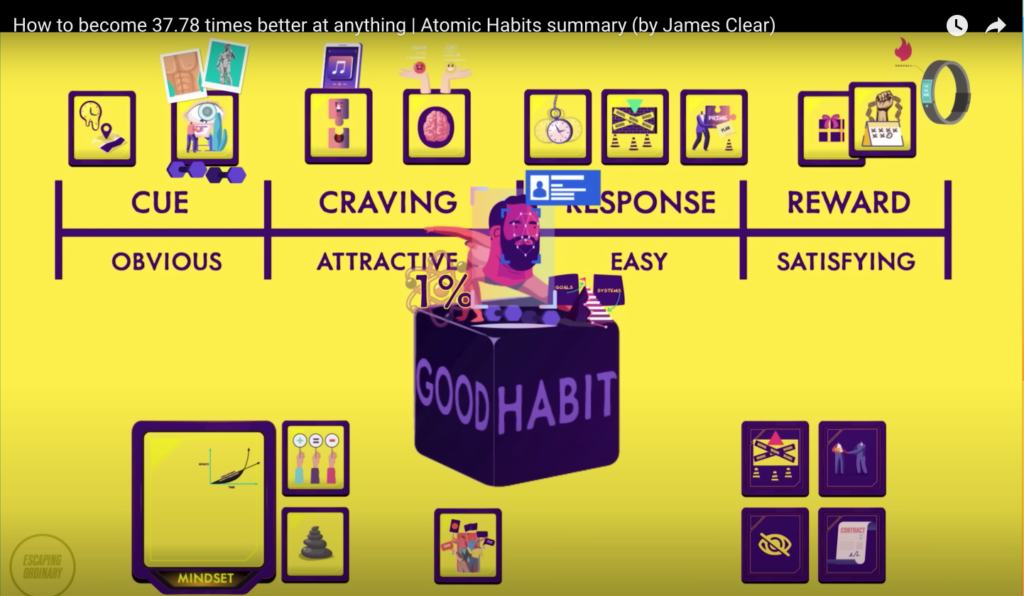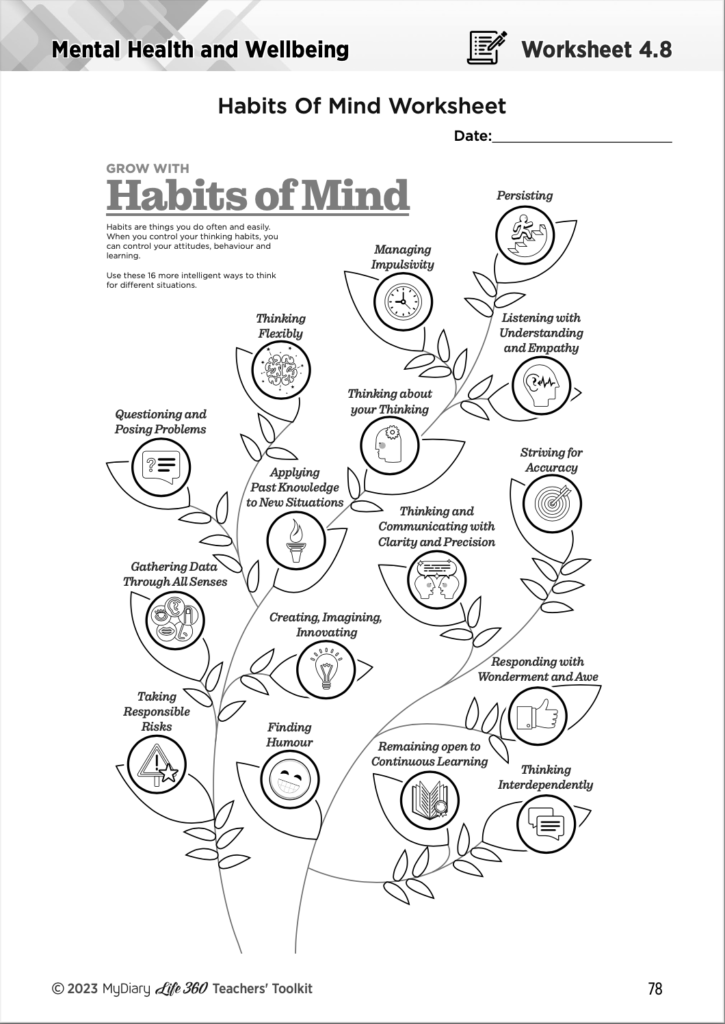During this week’s Pastoral Care administration period, our Year 9 students engaged in various learning experiences designed to increase their awareness around their social and emotional wellbeing. The activities were centred around building healthy habits, cultivating positive relationships, and fostering a sense of community.

The first activity involved students watching a video on the summary on the successful book “Atomic Habits”. This video was followed with a whole class discussion around how these habits can be implemented into a day to day routine. The video explored the idea that good habits can help individuals become 37.78 times better at anything. Students were encouraged to identify the habits they would like to develop in order to achieve their goals. Link: https://www.youtube.com/watch?v=PZ7lDrwYdZc
Following this introductory video students completed a “Habits of a Healthy Mind” worksheet. Students were tasked with matching the “habits of the mind” with the corresponding “visuals” and “mottos”. This exercise helped students understand how controlling their thinking habits can positively influence their attitudes, behaviour, and learning.

The third and final activity was on “Relationships and Community”. Students were prompted to reflect on the communities they belong to and identify the responsibilities and obligations involved with membership. They were also asked to consider who is not part of their communities and why. This think, pair, share activity promoted engagement amongst the boys as they conversed about similar groups and communities they belong to.
We would like to thank our Year 9 Pastoral Care Teachers and the students for their engagement and participation during this week’s Pastoral Care period. We hope that these activities have helped them further develop their social and emotional wellbeing.
Year 9 Pastoral Care Lesson Week 4 – by Nicholas Aivaliotis: Our pastoral care period this week focused on the theme of “Habits of a Healthy Mind”. involving making and creating small positive habits that can lead to significant changes in our lives. A change of habit can amount to massive improvement and large reward. The maths of being 1% better everyday for a year will amount to 37.78 times better. In our lives we have small habits such as waking up everyday for school, brushing your teeth every morning etc. By changing these habits slightly such as waking up 20 minutes earlier for school to go for a run, or brushing your teeth at night as well as in the morning to have cleaner teeth. These are just a few examples of making small changes and tiny improvements that will eventually amount to larger success. We also examined the four step framework of Cue, Craving, Response, Reward. This framework explains the significance of habit stacking, habit tracking, and habit shaping to make lasting changes. It was pretty interesting stuff.
As we continue to prioritise the social and emotional wellbeing of our students, we encourage you to support your child by having conversations with them about their experiences at school. We also encourage you to continue to reinforce positive habits at home.
Thank you for your continued support.
Sincerely,
Mr Preeo and Mr Belsito
Year 9 Pastoral Care Coordinators
